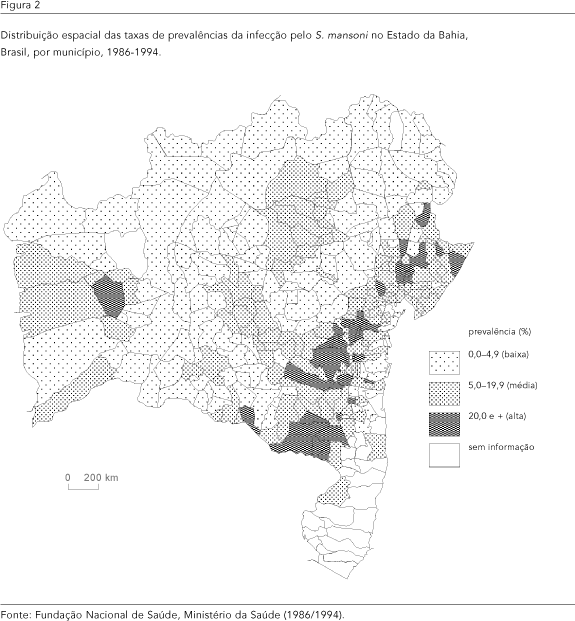Studies in African countries have shown an association between irrigation projects and the spread of schistosomiasis mansoni and haematobium. The aim of this study was to investigate the potential association between irrigation levels and the occurrence and spread of Schistosoma mansoni infection in the State of Bahia. Two forms of irrigation were developed in the State of Bahia: the first is capital-intensive and mechanized, requiring little manual labor. The second is labor-intensive and characterized by limited mechanization. According to the study, the municipalities with the largest irrigated areas are not the ones with the highest S. mansoni infection rates. In most of these counties, irrigation is capital- and technology intensive. According to the findings, unlike Africa, in the State of Bahia irrigation has had little impact on the spatial profile of the schistosomiasis endemic.
Schistosomiasis; Schistosoma mansoni; Water Resources; Spatial Distribution







